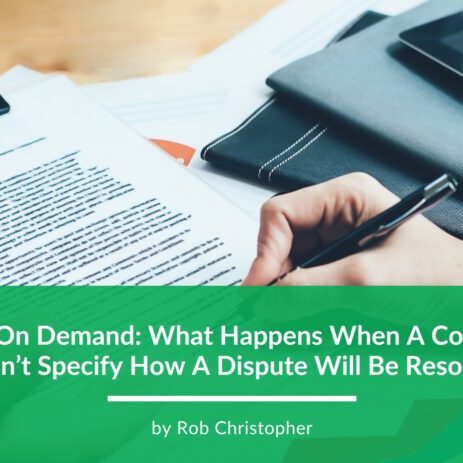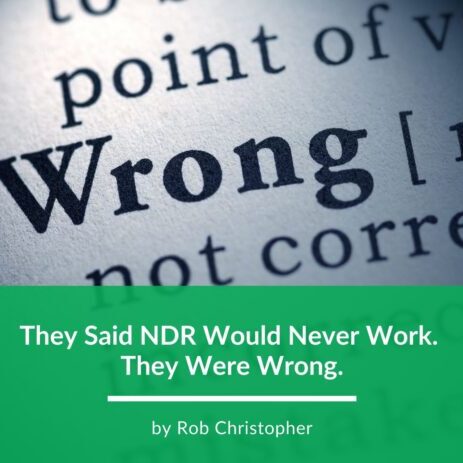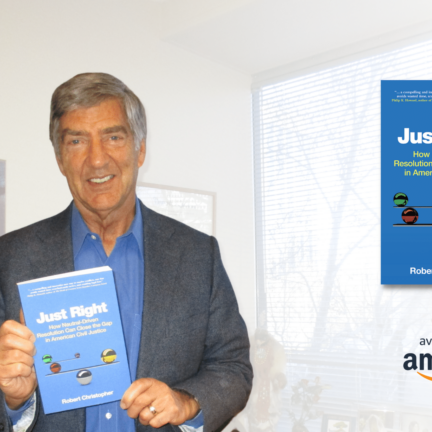Just What is NDR?

As you know, what we do at Just Resolve is promote and facilitate neutral-driven, non-adversarial ADR (“Alternative Dispute Resolution”) in legal disputes where legal and other related costs of litigation (and its popular alternatives) would otherwise consume the financial stakes over which the parties are fighting.
Neutral-driven ADR is exactly what its name implies, and could also be described just as accurately as Non-adversarial ADR. Either characterization is a mouthful, however, that doesn’t trickle off the tongue, might be confused with the other traditional ADR methods from which we proudly distinguish ourselves, and adds to word counts in every sentence we write about it.
Fortunately, I recently discovered the following solution in a rare “Eureka!” moment that – like most such moments – delivered a long overdue solution that was already staring me in the face: In short, either of the above descriptions can be shortened for ease of reference to “NDR.”
As a nerd, I was excited by this because it satisfies my all-too-convenient criteria of (1) brevity, (2) catchiness, (3) an easy, memorable acronym, (4) accuracy, (5) relevancy, (6) cohesion with related terms, (7) distinction and lack of confusion, and (6) availability. In other words, it seems perfect. Thus, for example, now I can write:
“Instead of letting dueling lawyers drive a process that inherently blows up costs to absurd levels, NDR empowers a mutually selected, independent neutral judge, expert or panel to (a) conduct a robust, yet stakes-sensitive investigation into what happened and what law controls a dispute and, (b) if necessary, ultimately decide the dispute. Specific rules and steps can vary, and are important, but when done right, NDR delivers on all critical criteria for a process that delivers swift, reliable and affordable justice in limited stakes disputes.”
Like hearing a great new song, this makes me happy. Now if I could just get more people and companies to sing with me, they’ll be happier too.
More to read
NDR on Demand: What Happens When a Contract Doesn’t Specify How a Dispute Will Be Resolved?
The best way to deter threats of litigation and minimize the costs, duration, and distractions of resolving any dispute is to put a dispute resolution clause specifying NDR — Neutral-Driven Resolution — in all your contracts BEFORE there is a problem. That means that if a dispute should arise between a business and a contractor,…
They Said NDR Would Never Work. They Were Wrong.
Many people are surprised by how effective NDR can be. Since publishing my book and speaking at events about NDR (Neutral-Driven Resolution), I’ve often been asked a simple question: Does it work? And if it really does lower the costs and the time it takes to settle common disputes, why doesn’t everybody know about…
“Morgan Hill author releases new book”
The Morgan Hill Times featured Rob’s new book in an article ahead of his “Meet the Author” night at Booksmart. “Legal disputes and conflicts cost businesses billions of dollars a year in lawyers’ fees, lost productivity, time and aggravation. A new book by Morgan Hill author Robert Christopher proposes an innovative, faster and simpler way…
Not All Disputes are Equal
Not all business and legal disputes are alike, and not all of them can be resolved in the same way. In writing my book Just Right: How Neutral-Driven Resolution Can Close the Gap in American Civil Justice, it was important to distinguish the types of common disputes for which NDR is most suitable. As readers…



